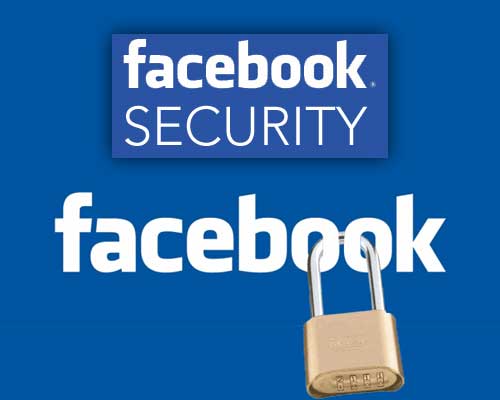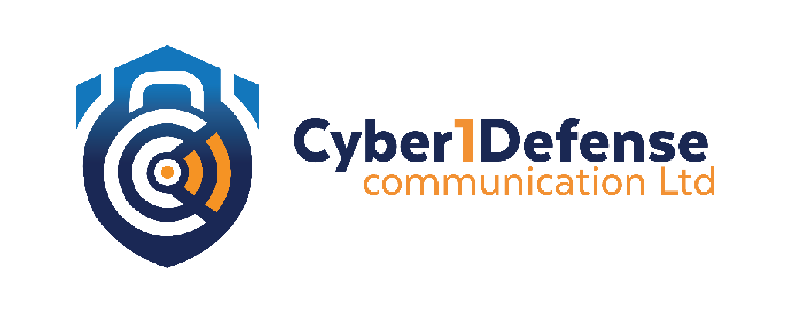[mc4wp_form id=”2320″]
Facebook Security
-
December 30, 2023
- Posted by: Evans Asare

Facebook security tips to protect your account from hackers or intruders.
Facebook is undoubtedly one of the most popular social media platforms with billions of followers on it. The hacking of Facebook is still on the rise and there has come a need to protect your account from these hackers. It has a lot of security mechanism put in place to help make the platform safe for it’s users. But with this security mechanism, hackers always find a way to get to their victims.
What is the easiest vulnerability to hacking Facebook account?
For you to fall victim to Facebook hacking will depend solely on you. It is not likely for Facebook to be compromise that easily. The only way for hackers to get ones Facebook account is through the account user. So as a user, if you want to use Facebook without getting your information stolen or your account hack, then follow the step below to be safe:
Facebook Security Measures:
Here are some key security measures you can take on Facebook to stay safe:
- Strong Password: Use a strong, unique password for your Facebook account. Avoid using common passwords and include a combination of letters, numbers, and symbols. Regularly update your password and avoid reusing it for other accounts.
- Two-Factor Authentication (2FA): Enable two-factor authentication for your Facebook account. This adds an extra layer of security by requiring a second verification step, such as a unique code sent to your mobile device, in addition to your password when logging in.
- Login Alerts: Enable login alerts in your Facebook account settings. These alerts notify you via email or text message whenever your account is accessed from an unrecognized device or location.
- Privacy Settings: Review and customize your privacy settings to control who can see your posts, personal information, and friend list. Limit the visibility of your profile to friends or a specific audience, and be cautious when accepting friend requests from unknown individuals.
- Account Recovery Options: Set up account recovery options, such as providing a secondary email address or a mobile phone number. This can help regain access to your account if you forget your password or encounter any login issues.
- Trusted Contacts: Facebook allows you to choose trusted contacts who can help you regain access to your account if you are locked out. Select friends you trust and assign them as trusted contacts in your security settings.
- App Permissions: Review and manage the permissions granted to third-party apps connected to your Facebook account. Remove any apps you no longer use or trust, as they may have access to your personal information.
- Recognize Phishing Attempts: Be cautious of suspicious emails, messages, or links that claim to be from Facebook. Avoid providing personal information or clicking on links unless you can verify their authenticity. Facebook will not ask you to provide your password via email or messages.
- Report Suspicious Activity: If you notice any suspicious activity on your Facebook account, such as unrecognized logins or unauthorized posts, report it to Facebook immediately. They have dedicated support channels for reporting security-related issues.
- Keep Software Updated: Maintain up-to-date operating systems, web browsers, and security software on your devices. Regularly install security patches and updates to protect against known vulnerabilities.
Remember, practicing good online hygiene and being cautious about sharing personal information are essential for maintaining security not only on Facebook but across all online platforms.

[…] Read also: Facebook security tips. […]
[…] Read also: Facebook security […]
[…] Read also: Facebook security […]
[…] Must read also: Facebook and privacy security measures to keep your online presence safe. […]
Your article helped me a lot, is there any more related content? Thanks!
kode sydney
I am really thankful to the holder of this site who has shared this wonderful paragraph at here.
my blog :: pttogel
This is a topic which is near to my heart…
Many thanks! Where are your contact details though?
Also visit my web site; luubet slot
SDG:
Interactive Development Group
About the Corporation
SDG (Social Discovery Group) is a international digital corporation that specializes
in building innovative systems for social interaction in the digital space.
The organization has built a solid suite of solutions that enable masses of
members to engage and build significant bonds across the globe.
Main Aspects
Cutting-edge solutions for interactive networking
Reliable infrastructure with sophisticated protection measures
International reach with multitudes of active participants
Forward-thinking methods for online connection
With a powerful dedication on innovation and user
satisfaction, SDG continues to develop its influence in the global
arena.
Management and Development
Our dedicated staff of authorities operates continuously to deliver
excellent platforms to our users. The organization sustains superior levels of operation and advancement.
Technical Superiority
SDG employs advanced platforms including automated intelligence and sophisticated metrics
processing. Our solutions are designed to handle masses of concurrent
participants.
International Reach
Broad framework of servers throughout the earth
Multi-language help for members from diverse locations
Area-specific customization for better operation
Sector Excellence
As a field innovator, SDG persists to set new levels in digital
connection. Our pledge to excellence has achieved us various awards and sector acclaim.
Upcoming Growth
SDG is continuously channeling assets into exploration and development.
Our plan encompasses promising new features and
products that will change the way individuals interact virtually.
Corporate Dedication
We preserve the supreme measures of principled conduct in all our organizational processes.
Our devotion to protection and information security remains constant.
Through continuous innovation and focus to excellence, SDG aims to remain at the vanguard of
social networking innovation.
Client Engagement
Our network offers an straightforward design that facilitates interactive
exploration easy. Individuals can enjoy a comprehensive variety of functions:
Premium matching systems for superior harmony
Real-time messaging with advanced translation capabilities
Extensive profile customization options
Interactive media exchange capabilities
Defense Measures
Our devotion to member defense is exhibited in our thorough safety protocols:
Sophisticated encryption solutions for communication preservation
Mechanical monitoring solutions for malpractice detection
Systematic defense evaluations by third-party professionals
Rigorous security policies and conformity with worldwide regulations
Business Progress
Our systematic plan to development encompasses:
Ongoing sector study and modification
Planned partnerships with industry pioneers
Periodic service improvements based on user
response
Distribution in emerging platforms
Social Effect
SDG consistently engages in various collective projects to generate a advantageous effect on civilization. Our endeavors comprise:
Educational activities for cyber literacy
Help for humanitarian projects
Sustainable projects to decrease our environmental effect
Charitable associations with multiple institutions
Hi there! Quick question that’s entirely off
topic. Do you know how to make your site mobile friendly? My weblog looks weird
when viewing from my iphone4. I’m trying to find a theme or plugin that might be able to fix this
issue. If you have any suggestions, please share. Many thanks!
My homepage; LUUBET login
Hello. Cool article. There’s an issue with the website in internet explorer, and you might want to test this… The browser is the marketplace chief and a large element of other folks will miss your great writing due to this problem.
https://t.me/orgoniteuniverse
Guaranteed Accounts Account Buying Platform
Account Trading Service Account Exchange Service
Account Selling Platform Account Trading Platform
Secure Account Sales Account Exchange Service
Account Catalog Account Buying Platform
Account Buying Service https://socialmediaaccountsale.com/
account buying service database of accounts for sale
account selling service account market
account sale accounts for sale
account trading platform buy account
account store social media account marketplace
buy accounts buy account
account trading platform profitable account sales
account buying service account selling service
accounts for sale account exchange service
account buying service account trading platform
buy pre-made account account marketplace
buy pre-made account account selling service
account selling platform gaming account marketplace
account trading service secure account purchasing platform
account store secure account sales
find accounts for sale buy account
account market sell pre-made account
cialis coupon online: TadalAccess – usa peptides tadalafil
cialis manufacturer: cialis for performance anxiety – cialis 80 mg dosage
unlimited bm facebook buy verified bm
tiktok ad accounts https://buy-tiktok-ads-account.org
cialis las vegas does tadalafil lower blood pressure or buy tadalafil online canada
http://www.dougabbs.com/i/index.cgi?mode=redirect&ref_eid=2139&url=https://tadalaccess.com cialis tubs
cialis 30 mg dose cialis 5mg daily and cialis over the counter usa cialis for sale toronto
https://tadalaccess.com/# u.s. pharmacy prices for cialis
buy verified bm verified-business-manager-for-sale.org
buy tiktok ad account https://tiktok-ads-account-buy.org
tamsulosin vs. tadalafil: buy cialis united states – cialis website
¡Saludos, cazadores de recompensas excepcionales!
Mejores casinos sin verificaciГіn en EspaГ±a – п»їemausong.es casinos sin registro
¡Que disfrutes de increíbles giros exitosos !
¡Hola, exploradores de oportunidades exclusivas !
Casino online sin licencia con seguridad avanzada – п»їcasinosonlinesinlicencia.es http://casinosonlinesinlicencia.es/
¡Que vivas increíbles giros afortunados !